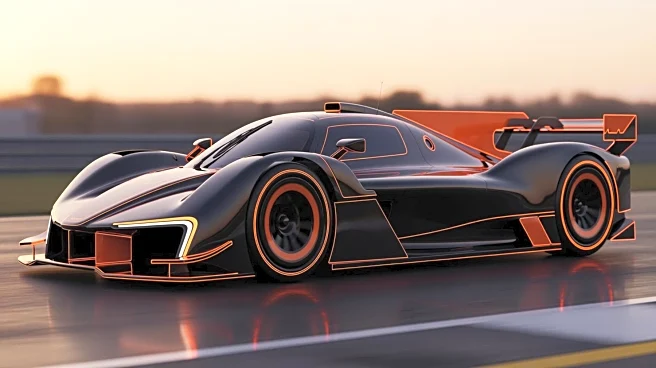Rapid Read • 8 min read
Tesla continues to lead the electric vehicle market in California, with its Model Y and Model 3 ranking as the top-selling EVs in the state. Despite a significant 18.3% drop in Tesla's sales in the second quarter, the Model Y remains the best-selling vehicle overall, while the Model 3 holds the third position. Other electric vehicles, such as the Hyundai IONIQ 5, Honda Prologue, and Ford Mustang Mach-E, have seen increased sales but still lag behind Tesla's models. The dominance of Tesla in California's EV market highlights the company's strong presence and the challenges faced by other automakers in gaining market share.
AD
Tesla's continued dominance in California's EV market is crucial for the state's efforts to increase electric vehicle adoption and meet environmental targets. The company's ability to maintain high sales figures, even amid a sales decline, underscores its influence in the industry. This situation presents a challenge for other automakers, who must innovate and market their EV offerings more effectively to compete with Tesla. The reliance on Tesla for achieving high EV penetration rates also highlights the need for diversification in the market to ensure sustainable growth and competition.
As Tesla maintains its stronghold in California, other automakers are expected to intensify their efforts to capture a larger share of the EV market. This could involve launching new models, enhancing marketing strategies, and improving production capabilities. The competition may lead to increased innovation and potentially lower prices for consumers. Additionally, California's regulatory environment may continue to evolve to support broader EV adoption, potentially influencing automakers' strategies and investments in the state.
Tesla's dominance in California not only impacts the automotive industry but also has broader implications for environmental policy and consumer behavior. The company's success in promoting electric vehicles contributes to reducing carbon emissions and advancing sustainable transportation. However, the concentration of market power raises questions about competition and the ability of other manufacturers to innovate and offer diverse options to consumers. The long-term effects of Tesla's market leadership may shape the future of the EV industry and influence global trends in vehicle electrification.
AD
More Stories You Might Enjoy












